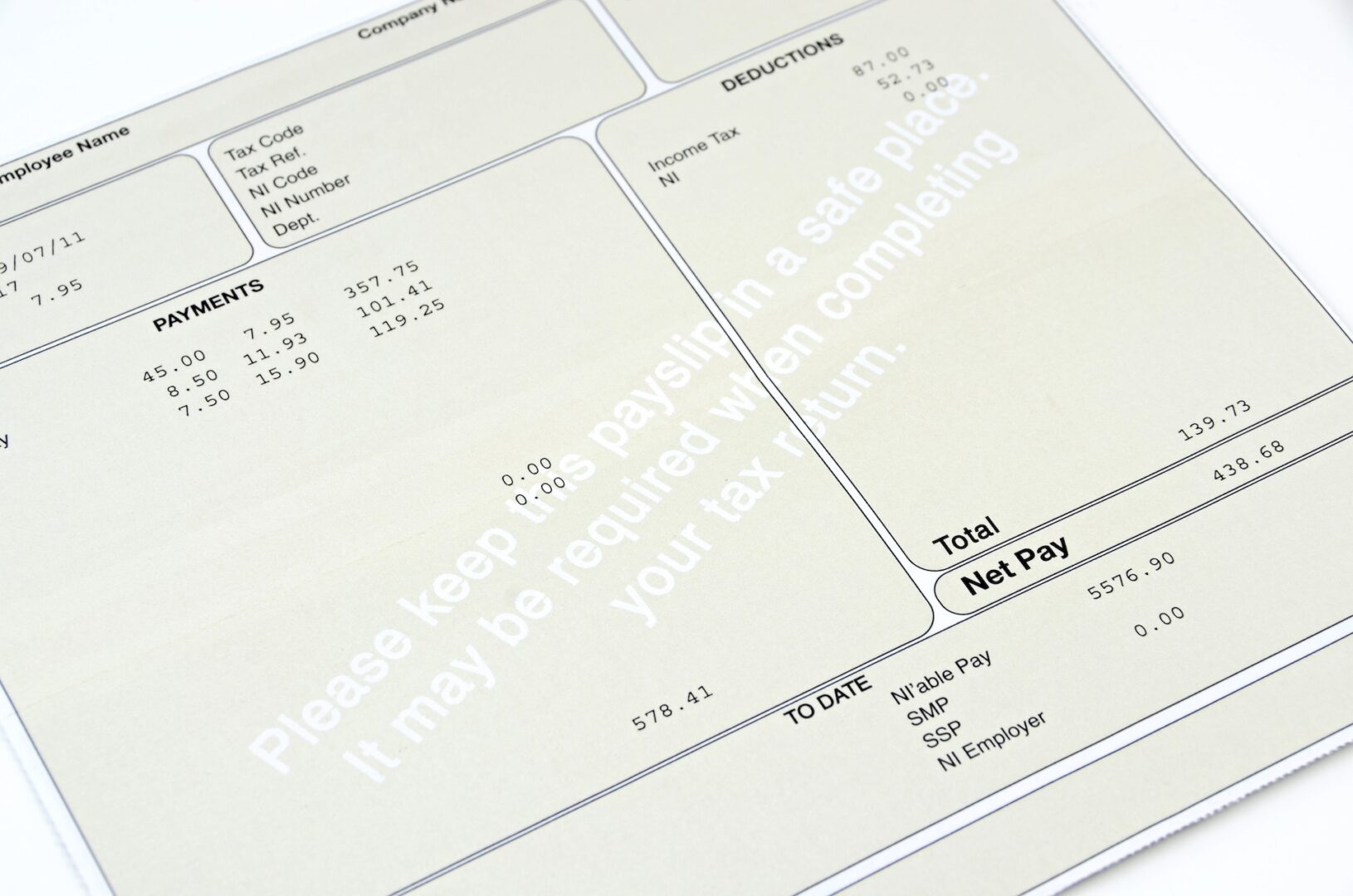Wage & Salary Disputes








What IS A Salary Dispute?
Employees work hard to earn a living, and they have the right to receive fair compensation for their time and labor. Unfortunately, not all employers comply with federal and state wage laws, leading to disputes over wages, salaries, overtime pay, and other forms of compensation. When an employer fails to pay employees what they are owed, workers may face financial hardships and legal uncertainty.
If you have experienced issues such as unpaid wages, withheld overtime pay, or salary misclassification, you may need to seek legal assistance. Klie Law Offices, with offices in Buckhannon, Parkersburg, Clarksburg, Morgantown, and Wheeling, serves clients throughout West Virginia and the surrounding areas, helping employees fight for their rightful earnings. In this article, we will discuss the most common wage and salary disputes, the laws that protect employees, the consequences of wage violations, and why hiring an employment lawyer may be the best course of action.
Understanding Wage and Salary Rights
A wage or salary dispute occurs when an employee believes they have not been paid correctly according to their employment agreement, company policy, or applicable labor laws. These disputes can arise in various situations, including misclassification of employees, failure to pay overtime, unpaid wages, illegal deductions, and delayed payments. One of the most common disputes involves unpaid overtime wages. Many employees are entitled to overtime pay under the Fair Labor Standards Act, which requires employers to pay non-exempt employees time and a half for hours worked beyond 40 hours per week. However, some employers either fail to compensate their workers for overtime or misclassify employees as exempt from overtime pay.
Another common issue is minimum wage violations. Federal law sets a minimum wage that employers must adhere to, but some states, including West Virginia, have different minimum wage requirements. Employers who pay below the legal minimum wage violate labor laws and can be held accountable. Salary misclassification is another widespread problem. Some employers wrongly classify workers as independent contractors or exempt employees to avoid paying overtime wages. While salaried employees may not always be eligible for overtime, the employer must follow strict classification rules. Misclassification can lead to employees missing out on significant earnings.
Additionally, some employers make unauthorized payroll deductions or withhold wages unlawfully. In certain cases, an employer may refuse to pay an employee after they leave the company, violating final paycheck laws. These violations not only cause financial stress but also create an unfair workplace environment. If you are facing any of these issues, an employment lawyer can help you understand your rights and pursue legal action to recover your unpaid wages.

Laws That Protect Employees in Wage and Salary Disputes
Federal and state laws exist to protect employees from wage theft and other violations. Understanding these laws can help workers determine whether their rights have been violated. The Fair Labor Standards Act is the primary federal law governing wage and hour regulations in the United States. This law establishes rules for minimum wage, overtime pay, recordkeeping, and child labor. Under this law, non-exempt employees must receive overtime pay at a rate of 1.5 times their hourly wage for all hours worked over 40 per week. The West Virginia Wage Payment and Collection Act further protects employees by requiring employers to pay wages on time and ensuring that final paychecks are provided promptly when employment ends. The law also prohibits unauthorized deductions from wages and ensures that employees receive the compensation they have earned.
Equal pay laws protect employees from wage discrimination. Under the Equal Pay Act of 1963, employers are prohibited from paying employees differently based on gender when performing substantially similar work. Other laws, such as Title VII of the Civil Rights Act and state-level equal pay statutes, also address wage discrimination based on race, age, disability, and other protected characteristics. If an employer violates these laws, employees may be entitled to back pay, penalties, and legal damages. Seeking legal assistance can help employees recover their lost earnings and hold employers accountable.
Common Wage and Salary Disputes Employees Face
Wage and salary disputes can arise in many ways. Some of the most frequent issues employees encounter include: Unpaid overtime is a common issue where employees work beyond 40 hours a week but do not receive the overtime pay they are entitled to under federal law. Employers may misclassify workers as exempt from overtime, fail to track hours properly, or require employees to work “off the clock” without compensation.
Minimum wage violations occur when employers pay below the federal or state minimum wage. Some companies try to manipulate workers’ pay by deducting expenses that bring their earnings below the legal wage threshold. Misclassification as an independent contractor often leads to workers missing out on benefits like overtime pay, health insurance, and workers’ compensation. Some employers use this tactic to avoid paying taxes and employee benefits.
Illegal deductions and withholding wages can occur when employers take money out of an employee’s paycheck for unauthorized reasons. Some companies make deductions for uniforms, training, or broken equipment without informing employees, which may be a violation of wage laws. Failure to provide final paychecks is another issue that employees face. When workers leave a job, they have the right to receive their final paycheck within a certain period. Employers who fail to pay workers their earned wages upon termination may face legal consequences. If you are dealing with any of these disputes, consulting with an employment lawyer can help you take action against unfair wage practices.

Why You Might Need to Hire a Wage and Salary Dispute Lawyer
When an employer fails to pay wages or violates labor laws, employees may struggle to recover what they are owed on their own. An employment lawyer can provide essential support by reviewing your employment contract, pay stubs, and work hours to determine if wage violations occurred. A lawyer can explain your legal rights and advise you on the best course of action. If necessary, they can file complaints with the Department of Labor or state labor agencies on your behalf.
In some cases, an employment lawyer may negotiate a settlement to recover lost wages and additional damages. If your employer refuses to comply with labor laws, a lawyer can represent you in court. Many employees hesitate to take legal action against their employer out of fear of retaliation. However, retaliation for filing a wage dispute is illegal. If your employer threatens you, demotes you, or terminates your employment for raising concerns about your pay, you may have a separate legal claim for retaliation.
How Klie Law Offices Can Help
Klie Law Offices is dedicated to protecting the rights of employees facing wage and salary disputes. With offices in Buckhannon, Parkersburg, Clarksburg, Morgantown, and Wheeling, we serve workers throughout West Virginia and the surrounding areas. Our employment law team is experienced in handling wage theft cases, overtime disputes, and employee misclassification claims. We take an aggressive approach to hold employers accountable for wage violations. Whether you need help recovering unpaid wages, challenging an unfair pay practice, or fighting workplace retaliation, Klie Law Offices is here to support you every step of the way.
If you believe your employer has violated wage laws, do not wait to take action. Contact Klie Law Offices today to schedule a consultation and learn how we can help you recover what you are owed. Wage and salary disputes can have serious financial consequences for employees. Whether you are dealing with unpaid wages, misclassification, or overtime violations, understanding your rights is the first step toward protecting your earnings. If you are facing wage issues, hiring an employment lawyer can provide the legal support needed to challenge unfair pay practices. Klie Law Offices is committed to fighting for employees’ rights and ensuring that workers receive the compensation they deserve. Contact us today to discuss your case and take action against wage violations.
Contact Klie Law Offices today to discuss your situation
Ultimately, whether you are trying to file a petition for contempt or respond to one, you need an attorney on your side who knows West Virginia law and knows the family courts. We have extensive experience advocating for West Virginians in family court, and we understand the procedures and protocols to follow.
We can handle all the legal aspects of your situation while you focus on your family. If you need help with post-divorce enforcement or contempt of court, don’t go it alone. Get an experienced family law attorney on your side. Contact us to schedule a case evaluation.
